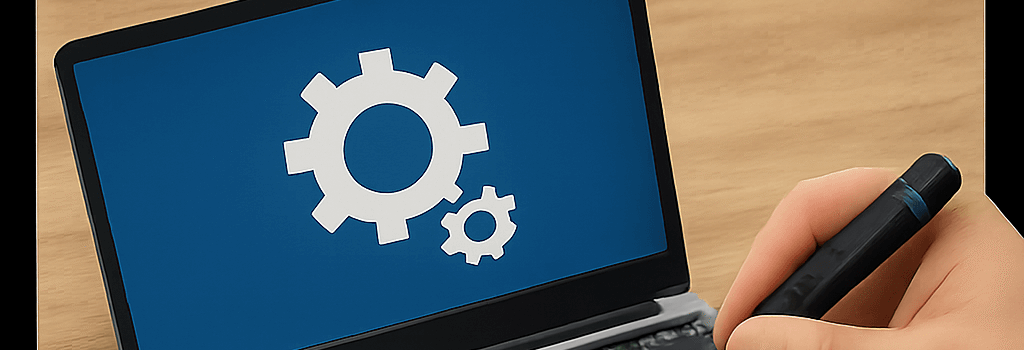Framework Enhances Software Support for Repairable Laptops

Revisiting Framework’s Software Support Challenges
Over the past five years, Framework has earned praise for its modular, repairable laptop designs that let users replace motherboards, screens, batteries, and ports. However, in early 2024 the company’s software support—including BIOS updates, driver refreshes, and security patches—lagged behind its hardware innovation. Multiple revisions of the original Framework Laptop 13 hadn’t received BIOS updates in over two years, Windows 11 compatibility remained in “beta,” and Linux users faced fragmented support across distributions.
“As a small company we rely on upstream vendors like Intel and AMD for binary blobs and firmware payloads,” Framework CEO Nirav Patel told us in April 2024. “We’ve hired a dedicated sustaining team at Compal to turn this around.”
Real Improvements in BIOS and Driver Distribution
By mid-2025, Framework’s publicly visible BIOS and driver update status page showed significant progress. Every Framework Laptop model—spanning six motherboard revisions of the Laptop 13, the newer Laptop 16, and the compact Laptop 12—has received at least one BIOS update since October 2024. Most models received multiple updates in 2025 alone, and AMD-based systems have seen fresh driver packages as recently as May 2025.
- Windows & macOS installers available via Framework’s download portal.
- LVFS integration delivers Linux firmware updates automatically through
fwupd. - EFI shell packages let users apply Intel Management Engine (ME) firmware on 12th-gen Intel models without Windows.
Technical Dive: UEFI, LVFS, and Firmware Pipelines
Framework leverages the Linux Vendor Firmware Service (LVFS) and fwupd to streamline firmware distribution. Each BIOS payload is packaged as an Extensible Firmware Interface (EFI) binary built with the EDK II toolchain, signed using Framework’s Platform Key (PK), and uploaded to LVFS. Linux distributions that ship fwupd can fetch delta updates or full firmware images over HTTPS, verify cryptographic signatures, and apply them at boot time.
Enhanced Linux Support and Community Collaboration
Community feedback on Reddit and GitHub issue trackers spurred numerous fixes to ACPI tables, power-management quirks, and Type-C controller firmware. Framework now provides DKMS-compatible modules for its proprietary sensors and webcam, while upstream drivers for Realtek audio and Intel Iris Xe graphics arrive via the Linux kernel tree. During our June 2025 SteamOS test on the Ryzen 7040-powered Laptop 13, sleep/wake reliability was flawless and GPU performance matched Windows benchmarks.
Security and Cybersecurity Implications
Timely firmware updates are crucial to mitigate vulnerabilities such as Intel ME CVE-2021-0157 or AMD PSP side-channels. Framework’s sustained update cadence ensures rapid deployment of upstream fixes for BootGuard, Trusted Platform Module (TPM) firmware, and Microarchitectural Data Sampling (MDS). Security researcher Dr. Elena Petrova notes, “Consistent patching of the Intel ME and AMD PSP prevents local privilege escalations and locks down the pre-OS attack surface.”
Beyond Laptops: Scaling the Update Process
With six distinct Laptop 13 board revisions, plus the new Laptop 16 and Laptop 12, Framework’s sustaining team faces a combinatorial challenge. CEO Patel confirms the group at Compal now executes monthly regression tests across legacy and current SKUs, validating firmware integrity on hardware-in-the-loop test rigs. This process will extend to the forthcoming Framework Desktop, slated to ship in Q4 2025 with socketed desktop CPUs and field-replaceable PCIe Gen5 NVMe modules.
Expert Opinions and User Feedback
Nicolas Bacca, lead firmware engineer at an open-source UEFI project, applauds Framework’s transparency: “Publishing detailed changelogs and leveraging LVFS sets a new standard for vendor-hosted firmware.” User surveys on the Framework Forum show a 40% drop in update-related support tickets since January 2025, indicating smoother rollouts and clearer documentation.
Looking Ahead: Strategy for Sustainable Lifecycle Support
- Upstream collaboration: Deepening partnerships with Intel and AMD for pre-release firmware payload access.
- Automated testing: Expanding hardware-in-the-loop rigs to cover all port modules and SKUs.
- Community engagement: Formalizing beta channels for power-users and Linux maintainers.
Framework’s renewed focus on software support complements its repairable hardware ethos. By institutionalizing firmware pipelines, bolstering Linux integration, and prioritizing security, the company positions itself as a leader in sustainable, user-centric computing.